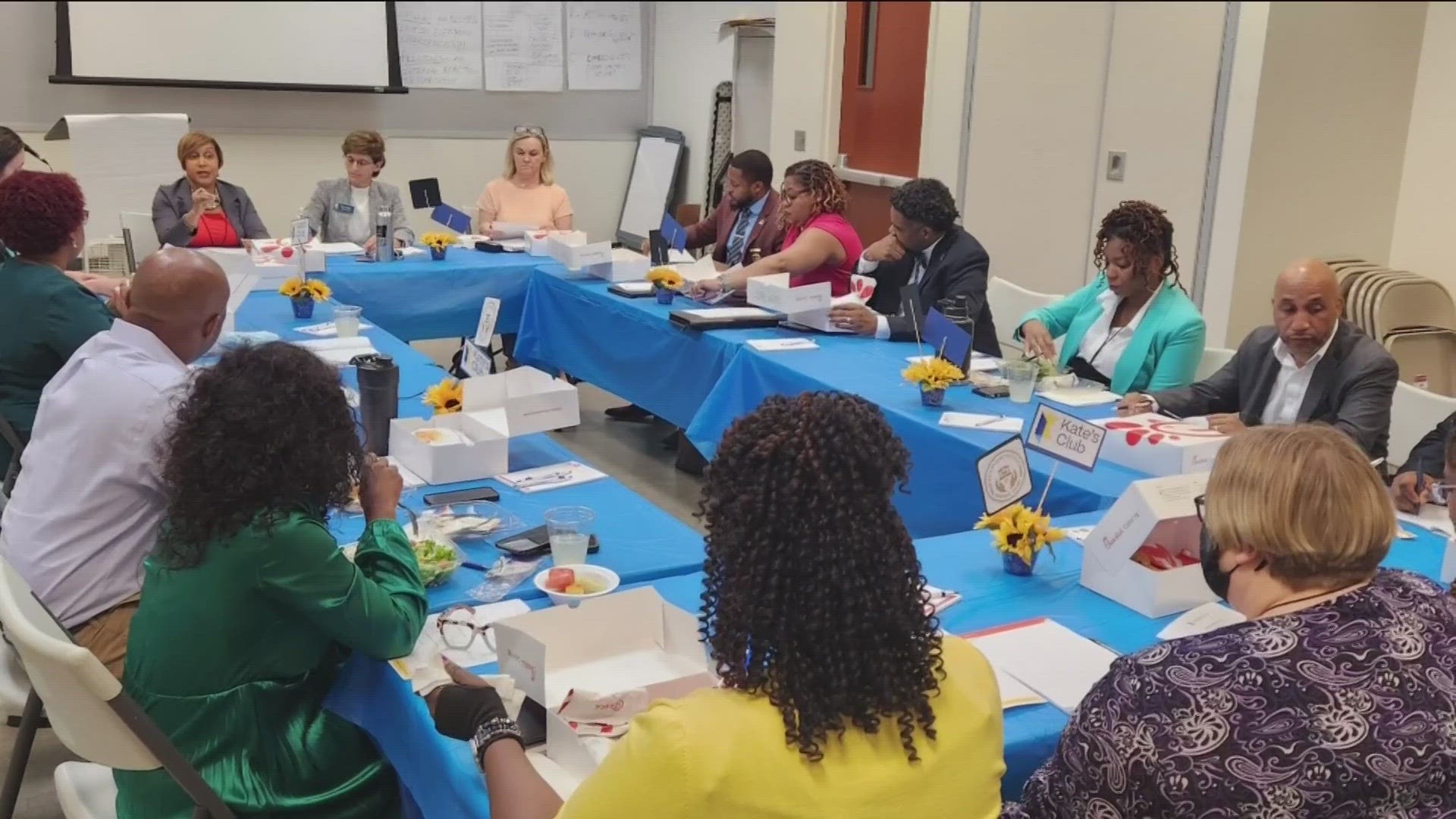DEKALB COUNTY, Ga. — DeKalb County Juvenile Court is on track to have 200 cases coming in each month, according to the chief judge, representing a mix of children and youth who are victims of abuse or neglect or alternately, minors who've been charged with crimes. But a new pilot program aims to curb those numbers, supporting youth through loss and trauma and stopping what program leaders call the 'grief to prison pipeline.'
"The need is huge," Fatima El-Amin, the Chief Judge of DeKalb County Juvenile Court, told 11Alive. "For any of us in the juvenile court arena, we know a very large percentage, probably most of the children we encounter in the court system have experienced significant loss in their lives."
After seeing countless cases where juvenile offenders were also victims of abuse or neglect, Judge El-Amin reached out to Kate's Club, recognizing the common threads of trauma and grief impacting youth cycling through the court system.
"Unfortunately with children in the juvenile justice system," El-Amin said, "not only have they often lost that parent or sibling, but they've lost that parent or sibling to violence."
The loss comes with layered trauma, she added, with the violence often committed by another family member.
"This is something we have to address," El-Amin said. "Because we know if children don't handle their grief, just like adults who don't handle their grief, they make bad decisions."
Numbers collected by Kate's Club further illustrate the concern, Lisa Aman, executive director, explained.
"There are more than 200,000 grieving children in the state of Georgia," Aman said. "Within the juvenile justice system, our best guess is between 20 and 25,000 children. It's a lot of kids."
KATE'S CLUB
"No one likes to talk about grief," Aman said. But Kate's Club, an Atlanta-based grief organization is designed to be the place for kids and young people to turn to while coping with the death of an important person in their life.
"People think you're coming to Kate's club, and it's going to be a sad place. We're not sad. We're happy and one of the things that we really instill in children is that it's okay to grieve and have fun. You can do both," Aman said.
The organization's group-based model helps kids and young people work through the journey of grief, understanding the difficulty of a child trying to process the experience alone.
"There's so many different feelings that come with grief," Aman said. "And so we start with that. Helping them understand exactly what grief is, and then we give them tools on how to express that grief."
The organization typically gets youth referrals through surviving parents, doctors and school groups. But finding other children to help can sometimes be difficult, Aman explained, due to the stigma of talking about death.
"One of our biggest challenges at Kate's Club is actually identifying children who are grieving because no one likes to talk about grief," Aman shared. "So we are looking for partners such as DeKalb juvenile court to help us identify the children."
THE PILOT: "DISRUPTING THE GRIEF TO PRISON PIPELINE"
El-Amin previously had referred children under her care to Kate's Club, but after becoming Chief Judge, she saw an opportunity for a different type of partnership: to bring Kate's Club to the court.
The pilot program, "Disrupting the Grief to Prison Pipeline," will focus on training court staff to identify children dealing with trauma and grief and then bring Kate's Club support services on-site to the court to help kids process emotions in a healthy way.
"So many times we're afraid to talk about grief, to talk about death, but the reality is, these children are dealing with the outcome of that loss every single day," El-Amin said. "We cannot afford to discuss these very serious issues with them because grief is impacting their behavior, their thoughts."
The pilot is "a bridge" between children and the community, Aman further explained, citing the risks of a child who is grieving alone.
"Depression, anxiety." she explained, adding if a child directly encountered the death, PTSD and suicide ideation can also be factors.
Unaddressed, such risks can also lead to a 'pipeline' of poor grades, absenteeism, poor choices or encounters with law enforcement, Aman said. But there's hope in the DeKalb partnership to help kids in the early stages and give them the safe space Kate's Club support offers.
"So these kids can learn how to first understand and then process and then articulate their grief in a healthy way," Aman said.
With 200 cases coming in per month, program leaders see the potential. El-Amin hopes the pilot can reach at least 10% of cases initially, which over a year's time would mean serving 240 youth. As the team begins tracking the data with the pilot launch, El-Amin also hopes to see other court systems incorporate the model, knowing the impact it potentially holds.
"Grief makes us do stupid things," she said. "One of the best ways to rehabilitate children is to help them identify, voice and heal the grief they're suffering from."

